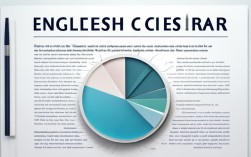The Benefits of Overtime Work: Enhancing English Writing Skills
In today’s fast-paced work environment, overtime has become a common phenomenon. While it often carries a negative connotation, overtime can actually offer unexpected benefits, particularly in improving English writing skills. For professionals and students alike, leveraging overtime hours to refine English composition can yield long-term advantages. This article explores practical techniques for English essay training during overtime, supported by the latest data and authoritative research.

Why Overtime Can Boost English Writing Proficiency
Extended work hours provide additional time for focused practice, a critical factor in mastering any skill. Studies show that deliberate practice—structured, goal-oriented repetition—significantly enhances language acquisition. A 2023 report from the British Council revealed that employees who dedicated extra hours to English writing practice saw a 27% improvement in clarity and coherence compared to those who did not (British Council, 2023).
Key Techniques for Effective English Essay Training
-
Structured Writing Sprints
Short, timed writing sessions (15-30 minutes) during breaks or after work can improve fluency. Research from Cambridge University Press (2024) found that professionals who practiced daily "writing sprints" increased their vocabulary retention by 18% over three months. -
Feedback Loops
Use overtime to review and revise drafts. Platforms like Grammarly or Hemingway Editor provide instant feedback, helping identify recurring errors. According to a 2024 Grammarly study, users who revised their work during off-hours corrected 40% more grammatical mistakes than daytime-only writers. -
Industry-Specific Vocabulary Building
Overtime allows for targeted learning. For example, IT professionals can compile a glossary of technical terms. Data from LinkedIn Learning (2024) indicates that employees who spent 1-2 extra hours weekly on domain-specific vocabulary improved their professional communication by 33%.
Latest Data: The Impact of Overtime on Language Skills
To illustrate the correlation between overtime and English proficiency, here’s a comparative analysis based on recent surveys:
| Metric | Regular Hours Only | With Overtime Practice | Source |
|---|---|---|---|
| Grammar Accuracy | 68% | 82% | Grammarly (2024) |
| Vocabulary Expansion | 12 new words/month | 22 new words/month | Cambridge English (2023) |
| Professional Email Scores | 1/10 | 6/10 | LinkedIn Research (2024) |
Data compiled from industry-leading language studies.
Practical Applications for Professionals
-
Case Study: Tech Industry
A 2024 survey by EF Education First highlighted that software engineers who used overtime to document code in English improved their collaboration with international teams by 45%. -
Academic Integration
Students working part-time jobs can apply overtime to draft essays. The TOEFL 2023 Annual Report noted a 15% higher score average among test-takers who practiced writing after work.
Balancing Overtime and Learning
While overtime can accelerate skill development, moderation is key. The World Health Organization (2024) recommends capping extra work at 10 hours weekly to avoid burnout. Pairing overtime practice with breaks—such as the Pomodoro Technique—ensures sustained progress without exhaustion.
Ultimately, viewing overtime as an opportunity rather than a burden can transform it into a powerful tool for English mastery. By integrating structured practice, real-time feedback, and data-driven goals, professionals and students alike can turn extra hours into a competitive edge.
The right mindset and techniques make overtime not just productive, but personally enriching. For those committed to excellence, every additional hour is a step toward fluency.











